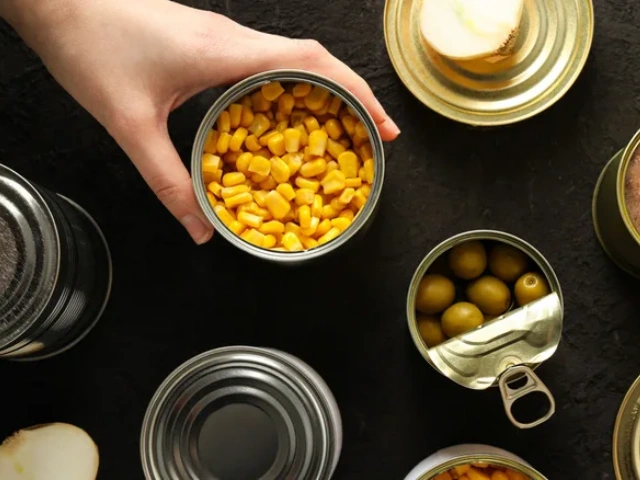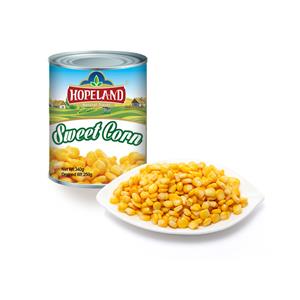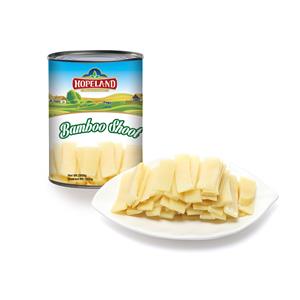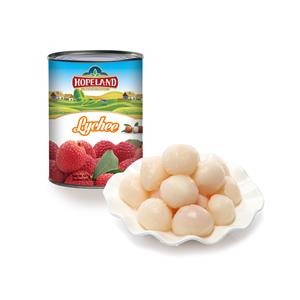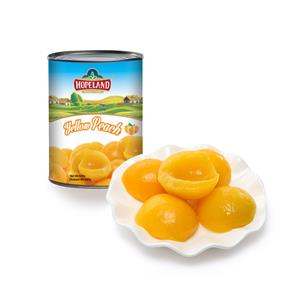Canned Food: A Smart Solution for Saving Time and Money While Boosting Nutrition
In today’s fast-paced world, finding convenient, affordable, and nutritious meal solutions can be a challenge. Between busy schedules and rising grocery costs, many people struggle to maintain a balanced diet without overspending or spending too much time in the kitchen. Fortunately, canned foods offer a practical solution—providing long shelf life, budget-friendly options, and essential nutrients with minimal effort.
While fresh produce often gets the spotlight in discussions about healthy eating, canned foods are an underrated staple that deserves more recognition. Whether you're a busy parent, a college student on a budget, or someone looking to simplify meal prep, canned goods can be a game-changer. Let’s explore how incorporating canned foods into your diet can save time, reduce food waste, and help you meet your nutritional needs.
The Nutritional Benefits of Canned Foods
One of the biggest misconceptions about canned foods is that they lack nutritional value compared to fresh or frozen options. However, research shows that canned fruits and vegetables can be just as nutritious—if not more so—than their fresh counterparts in some cases.
1. Peak Freshness Preservation
Canned fruits and vegetables are typically processed at their peak ripeness, locking in essential vitamins and minerals. For example:
Canned tomatoes often contain higher levels of lycopene, a powerful antioxidant, than fresh tomatoes due to the heating process.
Canned fish, such as salmon and sardines, retain their omega-3 fatty acids, which are crucial for heart and brain health.
Canned beans provide an excellent source of plant-based protein and fiber, making them a great meat alternative.
A study published in the Journal of the Academy of Nutrition and Dietetics found that people who included canned foods in their diets had higher intakes of essential nutrients like potassium, calcium, and fiber compared to those who didn’t.
2. Helping Families Meet Dietary Guidelines
Many people, especially children, fall short of the recommended daily servings of fruits and vegetables. Canned options make it easier to incorporate these food groups into meals. For instance:
A quick fruit salad made with canned peaches, pears, and pineapple (packed in juice) can be a healthy dessert or snack.
Adding canned carrots or green beans to soups and casseroles boosts vegetable intake effortlessly.
Canned pumpkin can be used in smoothies, oatmeal, or baked goods for an extra dose of vitamin A.
How Canned Foods Save Time in the Kitchen
One of the biggest advantages of canned foods is convenience. With pre-washed, pre-cut, and pre-cooked ingredients, meal prep becomes significantly faster.
1. No Prep Work Required
Fresh produce often requires washing, peeling, chopping, and cooking—all of which take time. Canned foods eliminate these steps:
Canned beans are ready to use—just drain, rinse, and add to salads, tacos, or chili.
Canned corn can be tossed into salsas, stir-fries, or casseroles without any prep.
Canned tuna or chicken makes a quick protein source for sandwiches, wraps, or pasta dishes.
2. Emergency Meals in Minutes
Having a well-stocked pantry means you can whip up a meal even when fresh groceries run low. Some quick meal ideas include:
5-Minute Chili: Combine canned kidney beans, diced tomatoes, corn, and pre-cooked ground beef (or plant-based crumbles) with chili seasoning.
Instant Soup: Mix canned chicken broth with canned vegetables, shredded chicken, and noodles for a comforting soup.
Speedy Stir-Fry: Use canned bamboo shoots, water chestnuts, and baby corn with frozen stir-fry veggies and soy sauce.
How Canned Foods Help Stretch Your Budget
With grocery prices on the rise, canned foods offer an affordable way to eat well without overspending.
1. Lower Cost Than Fresh Alternatives
Canned foods are often cheaper than fresh or frozen versions, especially when out of season. For example:
A can of diced tomatoes costs significantly less than fresh tomatoes in winter.
Canned salmon is a more budget-friendly option than fresh salmon fillets.
Canned beans are far cheaper than buying dried beans and spending time soaking and cooking them.
2. Reduced Food Waste
Fresh produce often spoils before it can be used, leading to wasted money. Canned foods last for years when stored properly, reducing the likelihood of throwing away unused food.
3. Smart Shopping Tips
To maximize savings:
Buy in bulk when canned goods are on sale.
Choose store brands, which are often just as nutritious as name brands but cheaper.
Look for low-sodium or no-sugar-added versions to keep meals healthy.
Debunking Common Myths About Canned Foods
Despite their benefits, canned foods sometimes get a bad rap. Let’s clear up a few misconceptions:
Myth 1: Canned Foods Are High in Sodium and Sugar
While some canned products contain added salt or sugar, many healthier options exist:
Choose "no salt added" or "low sodium" versions of vegetables and soups.
Opt for fruit packed in 100% juice instead of syrup.
Rinsing canned beans and vegetables can reduce sodium content by up to 40%.
Myth 2: Canned Foods Contain Harmful Preservatives
Most canned foods are preserved through heat sterilization, not chemical additives. The canning process itself keeps food safe without needing artificial preservatives.
Myth 3: Canned Foods Are Less Nutritious
As mentioned earlier, many canned foods retain their nutrients just as well as fresh options. In some cases (like tomatoes and pumpkin), the canning process actually enhances certain nutrients.
How to Store and Use Canned Foods Safely
To get the most out of your canned goods:
Check expiration dates and practice the "first in, first out" rule—use older cans first.
Store in a cool, dry place (below 85°F) to prevent spoilage.
Inspect cans before use—avoid bulging, rusted, or deeply dented cans, as these may indicate spoilage.
Final Thoughts: Why Every Kitchen Should Stock Canned Foods
Canned foods are a time-saving, budget-friendly, and nutritious choice for modern households. Whether you're looking to streamline meal prep, cut grocery costs, or ensure you always have healthy options on hand, keeping a well-stocked pantry of canned goods is a smart move.
Next time you plan your meals, don’t overlook the humble can—it might just be the secret ingredient to easier, healthier, and more affordable eating!

